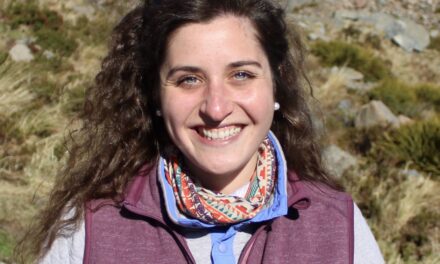(Editors’ note: We will take a microbreak from miCRo after this, but we’ll be back on the 30th!)
Assistant Editor Connor Yeck: In Sydney Goggins’s “Aubade in a little ice age,” language and environment become inseparable. Beginning with a glimpse of life in the midst of climactic change—an historic, chilled morning where ice clings to the “tongues of bells”—we’re ultimately asked to consider the changing nature of written meaning. Just as our environment shifts across the centuries, so too might a word like “glacier” reveal new contexts and subtleties. The result is a poem in which “those steep cliffs … sheer as glass” become emblematic of the Anthropocene, and the impermanence of our current environmental age.
Aubade in a little ice age
The bees in their winter hollow
hum like a Stradivarius
stilled in its case for years.
In town there is work to be done
coaxing ice from the tongues of bells
and this can be almost like standing
at dusk by a chapel door
and hearing the practice of hymn on the other side.
Over a century must pass
before there’s a name in English,
borrowed from French that borrowed first
from Latin, for those steep cliffs
where sea turns solid, sheer as glass—
and though you already know
how a glazier’s careful hands, trained
in the fitting of windows, cannot free
the panes from frost, you can’t imagine
that glaciers, like panes, can tremble,
can slip from their fitted frames
for decades before we notice.
Sydney Goggins holds an MFA in creative writing from the University of Missouri–St. Louis. Her work has appeared or is forthcoming in Quarterly West, Poetry Northwest, Lake Effect, and elsewhere.
For more miCRo pieces, CLICK HERE












